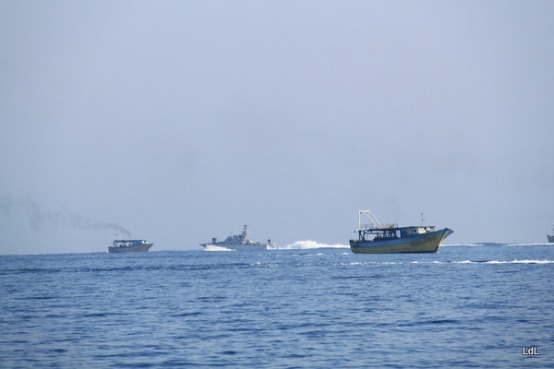Tag: Naval Blockade
-
A day at sea with Gaza’s fishermen
by Lydia de Leeuw 26 November 2011 | A Second Glance
-
Israeli navy hunts Gaza fishermen
24 November 2011 | International Solidarity Movement, Gaza Video of our international human rights observation boat outrunning the Israeli navy as it attempts to fire a watercannon on Palestinian fishing boats under 3 miles out to sea. Publicly, Israel ‘allows’ fishermen in Gaza 3 miles in which to make a living. Today, as happens on…
-
Gaza lives on
16 November 2011 | Al Jazeera English The Israeli blockade may have taken a heavy toll on Gazans, but this film reveals life and hope among the devastation. Since 2007, most of the approximately 1.5 million Palestinians living in the Gaza Strip have suffered gravely from an intensified land, air and sea blockade imposed by Israel.…

